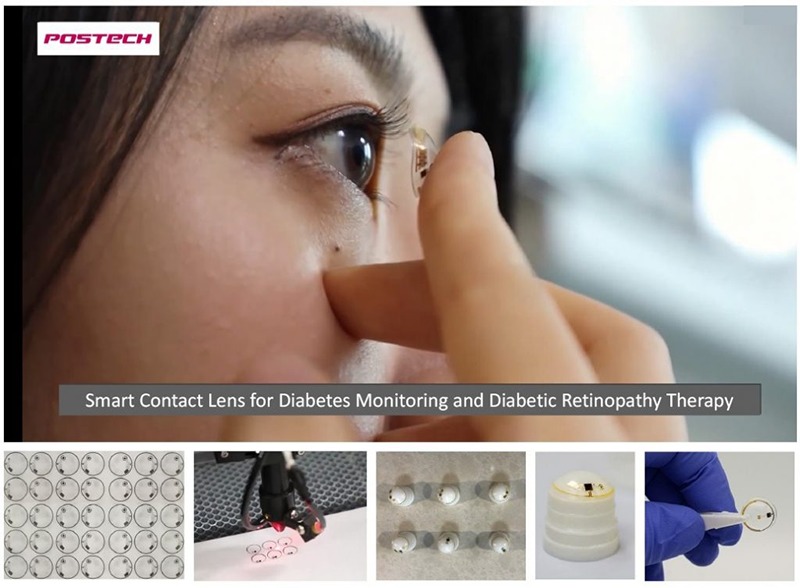In 2019, approximately 463 million adults were living with diabetes globally, and there’s no cure for the disease. People with type I diabetes are insulin-dependent, which means they must take artificial insulin daily to stay alive. In type 2 diabetes, the body still makes insulin, but the cells in the body do not respond to it as effectively as they once did. Insulin is a chemical messenger that allows cells to absorb glucose, sugar, from the blood. Having diabetes means a life-long obligation of insulin shots and monitoring of blood glucose levels. But what if you could control the secretion of insulin just by wearing contact lenses?
Read more Soft Contact Lens Can Monitor Glucose, Medical Conditions and Deliver Drugs
Recently, a research team at Pohang University of Science and Technology (POSTECH) in South Korea developed wirelessly driven ‘smart contact lens’ technology that can detect glucose levels in tears, and could controllably release genistein, a compound that may help treat diabetic retinopathy.
The research team was led by professor Sei Kwang Hahn. Others in the study were graduate students Do Hee Keum and Su-Kyoung Kim of POSTECH’s Department of Materials Science and Engineering, and Professor Jae-Yoon Sim and graduate student Jahyun Koo of Department of Electronics and Electrical Engineering. The findings were recently published in Science Advances, a world-renowned journal.
The smart contact lenses are made of biocompatible polymers and integrate biosensors and drug delivery and data communication systems, reports POSTECH.

The team verified that the glucose level in tears of diabetic rabbits analyzed by smart contact lenses matched their blood glucose level using a conventional glucose sensor that utilizes drawn blood. The team additionally confirmed that the drugs encased in smart contact lenses could treat diabetic retinopathy.
Recently, by applying the platform technology of these smart contact lenses, research has been conducted to expand the scope of electroceuticals that use electrical stimulations to treat brain disorders such as Alzheimer’s and Parkinson’s diseases and mental illnesses including depression.
The research team expects this development of self-controlled therapeutic smart contact lenses with real-time biometric analysis to be quickly applied to wearable healthcare industries.
Read more Imec, UGent and SEED Develop Hydrogel-Based Smart Contact Lens
“Despite the full-fledged research and development of wearable devices from global companies, the commercialization of wireless-powered medical devices for diagnosis and treatment of diabetes and retinopathy is insufficient.” He added, “We expect that this research will greatly contribute to the advancement of related industries by being the first in developing wireless-powered smart contact lenses equipped with drug delivery system for diagnosis and treatment of diabetes, and treatment of retinopathy,” Professor Sei Kwang Han said in a statement.












